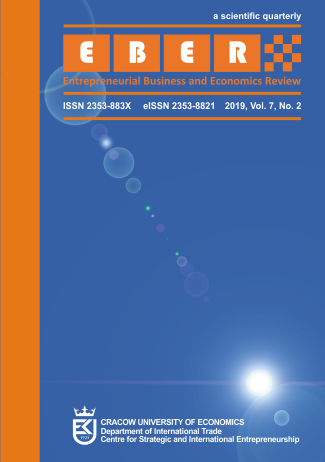The Capacity of JESSICA Projects to Repay Loans Based on Own Revenues
The Capacity of JESSICA Projects to Repay Loans Based on Own Revenues
Author(s): Piotr Idczak, Ida MusiałkowskaSubject(s): Economy, Geography, Regional studies, Economic policy, Evaluation research, EU-Accession / EU-DEvelopment, Financial Markets
Published by: Uniwersytet Ekonomiczny w Krakowie
Keywords: JESSICA; Poland; regeneration; revenue-generating projects; Cohesion Policy;
Summary/Abstract: Objective: Objectives of the article are the following: to identify 1) similarity/ dissimilarity in Polish regions with regard to the implementation of JESSICA projects in terms of the size of JESSICA loans/ projects and the legal form of beneficiaries, 2) what factors have the biggest impact on the project capacities to generate revenues. Research Design & Methods: The authors used the logistic regression to build a model showing the association of the variables analysed on the dependent variable. In addition, to point out a relative importance from all possible orderings of explanatory variables and to show the most important one(s), ANOVA method was applied. Findings: Not all the projects co-financed under the JESSICA initiative bring revenues from their main operations. The legal form of a beneficiary plays an important role. Both projects implemented by companies and projects of a relatively high value increase the probability of generating revenues. Location of the project (capital city/ non-capital city of the region) is not significant with regard to capacities to generate revenues. Implications & Recommendations: JESSICA projects characterised with a high value and implemented by entities having the company status involve private capital and consequently generate capital backflows. They contribute to leverage effects and thereby raise the role of JESSICA as a powerful instrument aimed at rendering existing market failures. It seems that the results of the study might help to design the use of JESSICA resources in the current and the future EU financial perspective. Contribution & Value Added: The article sheds more light on a still under-researched area of the use of financial instruments in the EU Cohesion Policy. The analysis provides pioneering results and points out the vital issues for future research.
Journal: Entrepreneurial Business and Economics Review
- Issue Year: 7/2019
- Issue No: 2
- Page Range: 141-157
- Page Count: 17
- Language: English

